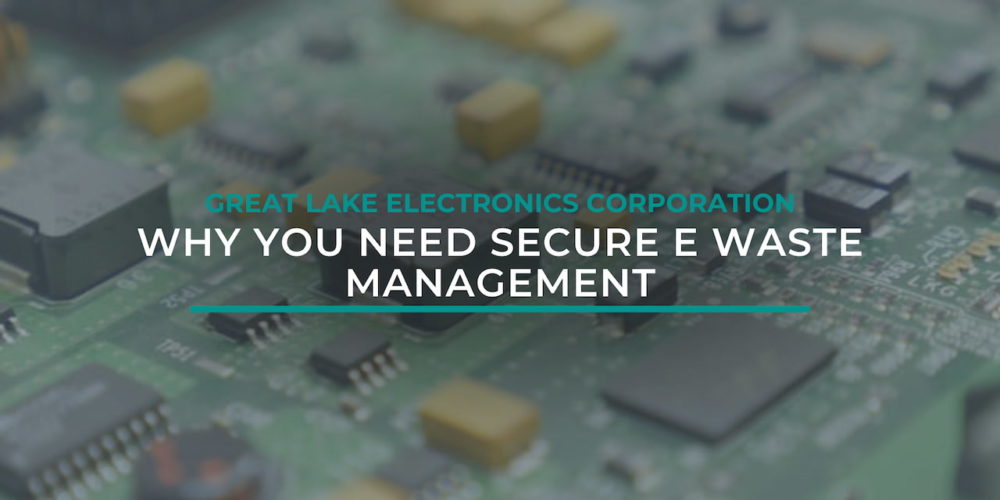Your IT assets, especially your hardware, have limited lifespans. Eventually, you’ll have to decommission them and purchase new hardware. But, what happens with the old hardware? Just throwing out a computer isn’t enough – you have to ensure that all data has been removed from it before you get rid of it. There are serious security implications to consider.
In this post, we’ll explore e-waste management, the process of safely and securely disposing of IT assets, and we’ll look at what it involves and why it matters.
What Is E-Waste Management?
E-waste management refers to the disposal of IT assets in a way that’s secure and ecologically friendly. IT hardware (such as mobile devices, laptops, and desktops) contain components that could be hazardous if exposed to air. That’s why it’s critical to get rid of them in a way that’s safe.
Moreover, hardware can contain sensitive data. You don’t want proprietary information falling into the wrong hands. Companies must destroy the data (a process known as data destruction or data sanitization) so they’re not at risk.
Why E-Management Matters
Why is e-waste management so important to companies today? There are three reasons:
- Your IT department doesn’t have the tools to do it effectively
- Ineffective e-waste management techniques create a risk of a data breach
- Government, defense, and intelligence agencies won’t work with companies that don’t securely destroy their data
- Compliance with regulations
Your IT Department Doesn’t Have the Tools for Effective E-Waste Management
IT departments don’t have the tools for effective waste management. Their go-to technique is wiping a drive or device. While wiping can remove quite a lot of data, it doesn’t remove all of it.
A report from Blancco Technology Group revealed that out of 200 disposed hard drives, 11% still had corporate data on them. That means if you’ve still got data – any data – you’re at risk for a cyber attack. Which brings us to our next point…
Ineffective E-Waste Management Techniques Create Data Breach Risks
When we hear the words “data breach,” we tend to think of hackers sitting in dark rooms hunched over their keyboards. While hackers bypassing networks are a common cause of data breaches, you can’t overlook the effect of physical theft on cybersecurity.
If e-waste management isn’t secure, theft can run rampant. Electronics are the sixth most stolen commodity globally. Two-thirds of electronics theft happens while the electronics are in transit, while 11% of thefts take place while the electronics are in the warehouse awaiting disposal.
A 2018 study showed that a quarter of data breaches are caused by negligence. Data breaches are an expensive proposition; it costs companies $150 per stolen record. Companies can face regulatory penalties (levied at the local or federal level) as well as damage to their reputation. No one wants to do business with a company that’s negligent about its security.
Government, Defense, and Intelligence Agencies Won’t Want to Work with You
By not engaging in effective e-waste management, you’re saying that you’re not willing to do business with organizations in highly regulated industries, such as the government, defense, and intelligence.
These organizations are bound by strict rules about with whom they can do business, and the conditions under which they can do business. That means that they need assurance IT assets will be disposed of in a way that doesn’t compromise confidential information. Governments, defense, and intelligence agencies must see a certificate from your e-waste management vendor so they know that data has been completely destroyed.
Government contracts can be lucrative, and working with defense and intelligence agencies enables you to access a new market and seize new opportunities. To do that, you need to show you take data security seriously.
Compliance with Regulations
Even if you don’t do business with governments or defense and intelligence agencies, you still might be in an industry that has regulations about how information is managed and destroyed. If you don’t dispose of e-waste in a secure manner, you could find yourself paying expensive penalties. Additionally, your reputation will be damaged because you didn’t adhere to regulations.
Working with a reputable e-waste management vendor ensures that you’ve complied with those regulations. You can present your compliance manager with a certificate stating that the equipment and data have been disposed of as per regulations.
Work With GLEC
When e-waste management is done right, you meet compliance standards for destroying data. GLEC offers e-waste management with data destruction certificates to our clients, guaranteeing complete data security. We shred hard drives and other electronics to their base components so they can be reforged to create completely new electronics; we don’t just wipe hard drives and resell them with confidential data still intact. To learn more about secure and effective e-waste management, contact us today.

